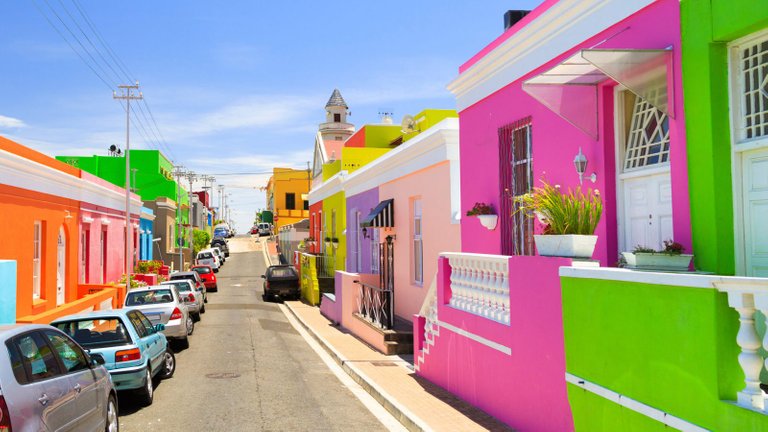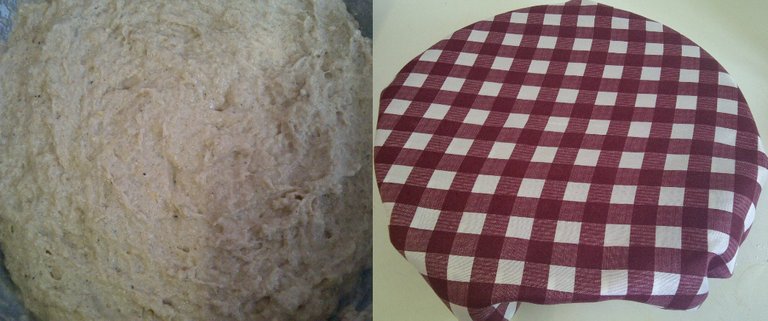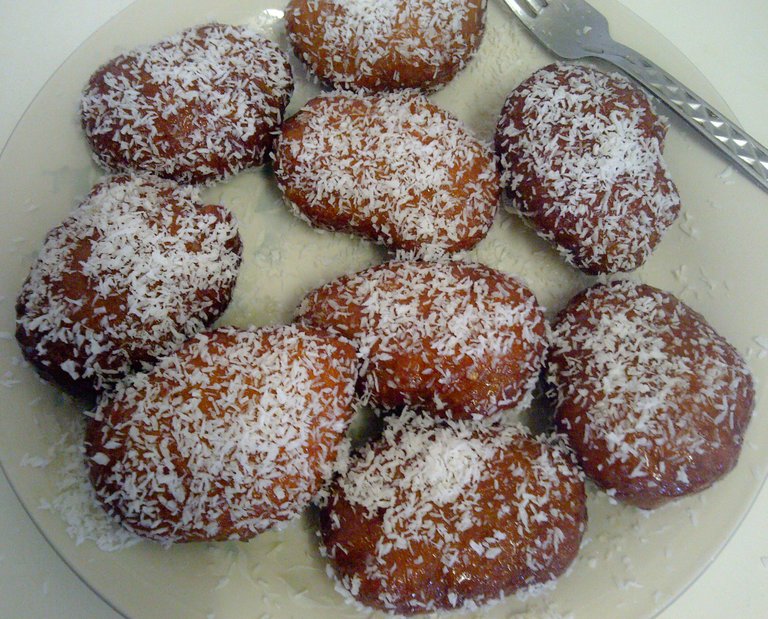
Koesisters
The perfect combination of sweet and spicy, koesisters are similar to donuts but with spices like cinnamon, ginger, cardamom and aniseed mixed into the dough, it's definitely something unique to Cape Town. It's been a long standing tradition in Cape Town, and in particular in the Cape Malay/Coloured community, to have koesisters for breakfast on a Sunday morning.

Bo-Kaap, Cape Town - formerly known as the Malay Quarter
Cape Malay cooking originated from the time of slavery in the Cape, when slaves who were originally from Southeast Asian countries, had to adapt their cooking styles to the palate of their Dutch masters. Substituting the more hot and spicy ingredients for aromatic and fragrant spices, some of which can be found in the many different koesister recipes.
When I was younger, I used to spend holidays and weekends with my grandparents on the Cape Flats (the Cape Flats is the areas where people were forcibly moved to, during apartheid) and every Sunday at about 8 am, my cousin and I would go buy koesisters. We would get a bowl full of koesisters for just R20 ($1,70), enough for the entire family. Of course that was quite a few years ago and prices have increased but it's still good value for money, compared to similar things you would find in most supermarkets.
Koesisters are usually made Saturday evenings, once all the ingredients is mixed into the dough, it's left in a warm place to rise for about 2 hours.

The dough before it has risen - it's then covered with cling wrap and a tablecloth to help it rise a little quicker
The dough is then rolled out to a 5 cm thick coil and then, pieces 2 cm in length, is cut off and shaped into slightly flat donut shapes, it's then fried and left covered overnight. On Sunday morning, the koesisters are boiled in a sugar syrup and then covered in coconut, this is the best time to eat it, while it's still hot.
I myself have started making koesisters and I know I have a long way still to go, before I get it just right.

Cardamom koesisters I made from a family recipe
Sunday morning koesisters are part of the culture of Cape Town and a tradition that's not going anywhere, anytime soon 😊.
Source - Cape Malay cooking
All images are my own unless indicated otherwise


Koeksisters and Koesisters such a strong tradition in South Africa I prefer the Malay taste since I love spicy, both are delicious. Each family appears to have a special recipe of this yummy sweet meat @hoosain
I think there are probably many more recipes out there than we can imagine... certainly most of the koesisters I've tasted, do have some difference in taste!!
Thanks for stopping by 🙂
Peace, Abundance, and Liberty Network (PALnet) Discord Channel. It's a completely public and open space to all members of the Steemit community who voluntarily choose to be there.Congratulations! This post has been upvoted from the communal account, @minnowsupport, by hoosain from the Minnow Support Project. It's a witness project run by aggroed, ausbitbank, teamsteem, theprophet0, someguy123, neoxian, followbtcnews, and netuoso. The goal is to help Steemit grow by supporting Minnows. Please find us at the
If you would like to delegate to the Minnow Support Project you can do so by clicking on the following links: 50SP, 100SP, 250SP, 500SP, 1000SP, 5000SP.
Be sure to leave at least 50SP undelegated on your account.
Oh boy, these look really yummy. Could you share the recipe? @ironshield
Oh my goodness that looks so good!
They have something similar i Portugal, but fragranced with orange skin. And no coconut around.
Thank you :-)
There are quite a few different recipes, some give the option of adding naartjie (tangerine) skin... if available of course.
And I bet they are all very delicious :)
Okay, I love donuts and this looks delicious.... and the coconut santan covered all around it... hungry!
Thank you :-)
Lekker man!!!
These are perfect for breakfast with coffee or rooibos tea. A few days old in the tin, and they become harder, crunchier.. almost like a rusk ;-) I've been known to hide a few from the rest of the family, just because no one else likes them when they're hardened.